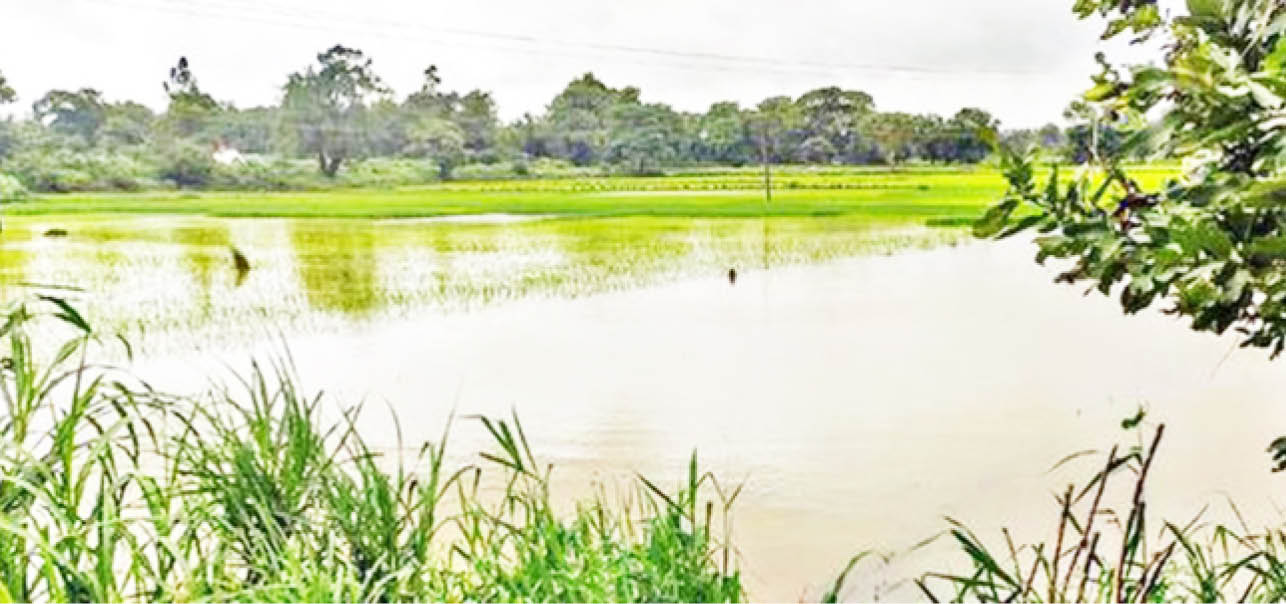High cost of inputs, pests frustrating irrigation farmers in Niger
Flood-ravaged rice farming communities in Lavun LGA of Niger State are groaning over the challenges of rising cost of inputs, especially fertiliser and seeds, even as rats and other pests are eating up their rice plant. The farmers who have just commenced dry season rice farming told our correspondent that while their rainy season farms […]

A flooded rice farm in Ozuho community of Kogi LGA in Kogi State
Flood-ravaged rice farming communities in Lavun LGA of Niger State are groaning over the challenges of rising cost of inputs, especially fertiliser and seeds, even as rats and other pests are eating up their rice plant.
The farmers who have just commenced dry season rice farming told our correspondent that while their rainy season farms were washed away by flood, the dry season farming had been constrained by lack of funds to buy inputs at the current market prices.
The affected communities include Manbe, Sa’achi-Nku, Egagi, Ebangi, Lanchikagi, Nku, Baji, Tama-woro, Dokomba among others.
One of the farmers, Idris Mohammed, told our correspondent that a bag of Urea fertiliser goes for N30, 000 while a bag of rice seed is N20,000.
High cost of inputs, pests frustrating irrigation farmers in Niger
Cement stocks dominate gainers list as All-Share Index jumps 2.9%
“As for me, I will need at least 5 bags of fertiliser and about 2 bags of rice seed to cover my rice farm. I cultivate 2 hectares. And without this dry season farming, surviving won’t be easy for us because many of us have no other means of livelihood than farming. We need support from government. During rainy season farming, I spent close to N300,000 on my rice farm that was washed away by flood. Now, we are just struggling on irrigation farming and we have another challenge of rats eating up the rice that we have planted,” he said.
Mohammed said many farmers would not be able to engage in irrigation farming this year because what they spent in the rainy season farming, especially on rice, was lost to the flood.
Another farmer, Mallam Yakubu Manbe, said while irrigation farming was the only alternative they had to recover from the devastating effect of flood this year, the practice was capital intensive for them except they got support.
“The only alternative for surviving now is to engage in irrigation farming which is capital intensive. And support is not forthcoming from government. As the flooded water is subsiding, farmers are just following it,” he said.
